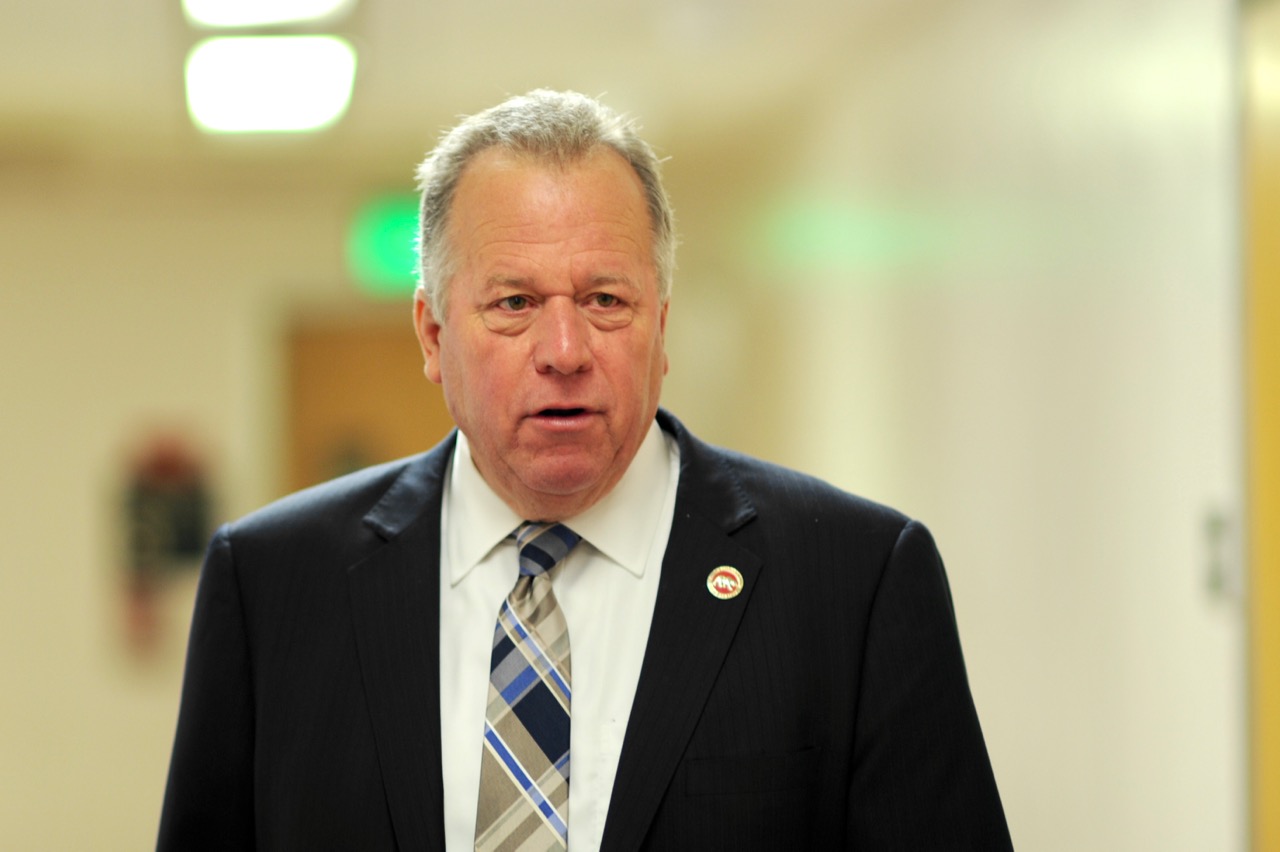
Sydney Kamlager. (Photo: Kevin Sanders for California Globe)
Bill To Allow Californians To Pay For Government Services With Cryptocurrencies Introduced in Senate
A single Bitcoin transaction burns 2,292 kilowatt hours of electricity
By Evan Symon, February 22, 2022 12:16 pm
A bill to allow the California government to begin accepting cryptocurrency such as Bitcoin as payment for services by state agencies began discussion in the Senate this week following its introduction last Friday.
Senate Bill 1275, authored by Senator Sydney Kamlager (D-Los Angeles), currently has only the basics of the bill down, simply stating that “a state agency may accept cryptocurrency as a method of payment for the provision of government services.” Limitations, specifics on the agency, and solid boundaries of what can and cannot be paid by cryptocurrency is still not in the books.”
However, many in Sacramento expect it to be much like how other states will be accepting it as currency later this year. Specifically, many think that the cryptocurrency will simply be a secondary form of currency, and will be converted immediately into dollars once received to avoid any wild fluctuations in market price, similar to what Colorado will be doing with accepting cryptocurrency for tax payments come this summer.
“Some lawmakers are currently looking for amendments or clarity on SB 1275,” explained “Dana,” a State Capitol staffer to the Globe on Tuesday. “Many are worried that things like Bitcoin and Ethereum are in a bubble and want sort of guarantee that the amount of cryptocurrency paid will be exactly the amount in dollars once converted over.”
“Also, this wasn’t said directly to this bill since it was a few years ago, but an Assemblywoman talking to us about it a few years ago said cryptocurrency was like putting money in Beanie Babies some twenty years ago. So at least some don’t exactly have faith in it.”
Despite hesitancy from some lawmakers, many states are at least discussing accepting cryptocurrency for payments to some degree. This year alone, besides Colorado’s approval for later this year, Arizona, Wyoming, Tennessee, Illinois, Georgia, and others have active bills for accepting crypto payments or offering tax incentives for crypto mining.
Questions over stability, environmental impacts of cryptocurrency
Those looking into crypto adoption are currently unsure if these bills will pass, especially in states with strict environmental regulation like California.
“To some, cryptocurrency is here to stay and is a major part of finance and investing in the future, especially with its blockchain technology,” cryptocurrency researcher Austin Carter to the Globe on Thursday. “Billionaires like Elon Musk have said as much. To others, cryptocurrency is a huge scam or pyramid scheme with extra steps, or at best, is a wildly speculative market on the verge of collapse. Billionaires like Warren Buffet and Charlie Munger even compared it to being the 21st century equivalent to the Tulip craze of 1740’s Amsterdam.”
“One thing is for certain, adoption will continue to be slow. I mean, you’re having cryptocurrencies having ads during the Super Bowl now, but a lot of people are questioning even that because when did you last see the US dollar or Euro have an ad on TV?”
“For California though, questions of legitimacy are there, but it’s nowhere near what environmental issues could be. Cryptocurrency has a huge environmental impact due to the way it makes transactions and the amount of power it needs to keep up.”
According to PC Magazine, a single Bitcoin transaction burns 2,292 kilowatt hours of electricity, enough to powering an average U.S. household for 78 days. In terms of a carbon footprint, a single bitcoin transaction is equivalent to 2.4 million credit card or bank transactions. Annually, Bitcoin transactions alone require as much power as it takes to power the country of Thailand, with it’s carbon footprint being equivalent to the country of Kuwait.
“Ecofriendly Californians, especially state Senators and Assembly members, will have a field day with the environmental impacts. The SB 1275 bill will get shredded by it in all likelihood. The state doesn’t want a hue addition to it’s carbon footprint in this day and age, so for the bill to pass, they need to get past the environmental issue.”
SB 1275 is expected to be heard in Senate committees soon.
- Man Who Broke Into L.A. Mayor’s Home to Receive Probation, Mandatory Drug Treatment - July 25, 2024
- California National Guard Counterdrug Task Force Seizes nearly $4 Million Worth Of Fentanyl In June Following Ramping Up Of Actions - July 24, 2024
- San Francisco’s Guaranteed Income Programs for Trans People to End - July 24, 2024





6 thoughts on “Bill To Allow Californians To Pay For Government Services With Cryptocurrencies Introduced in Senate”